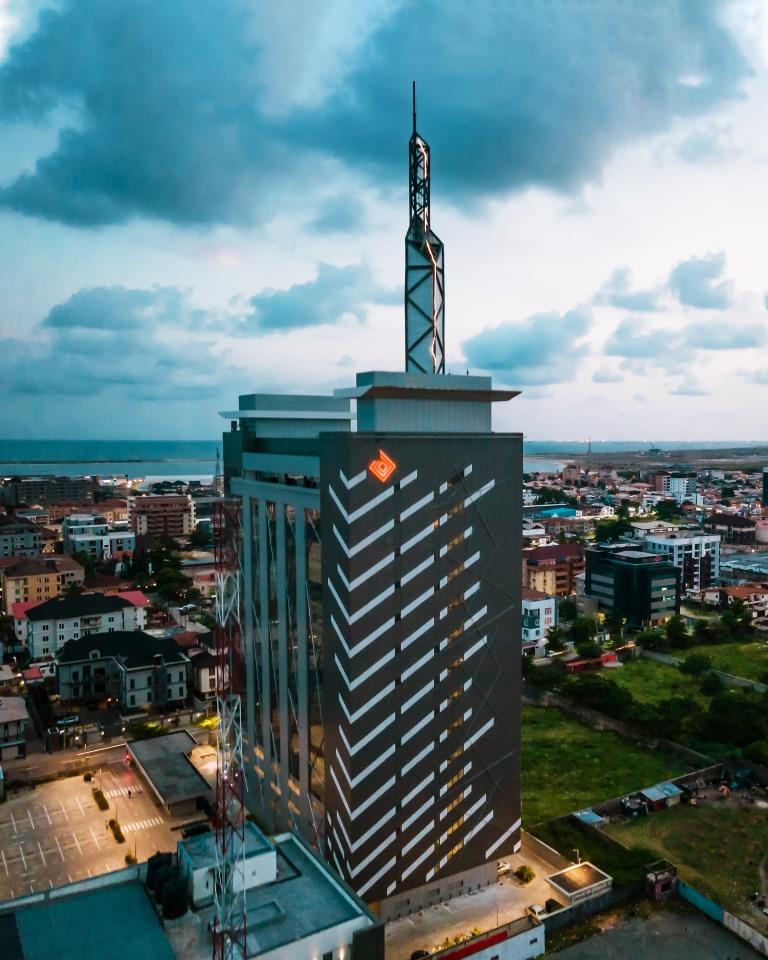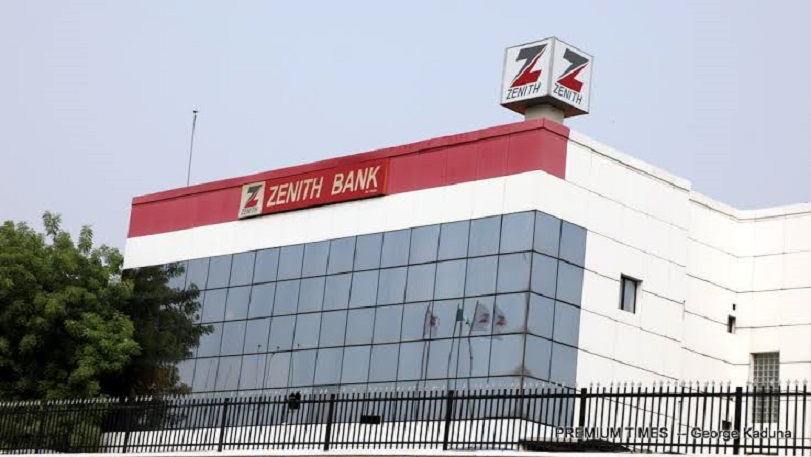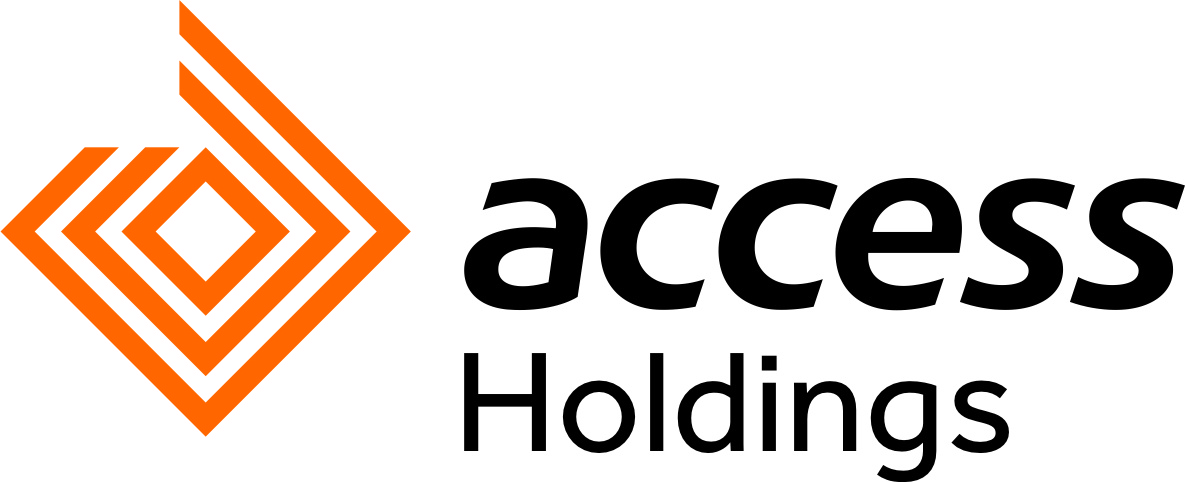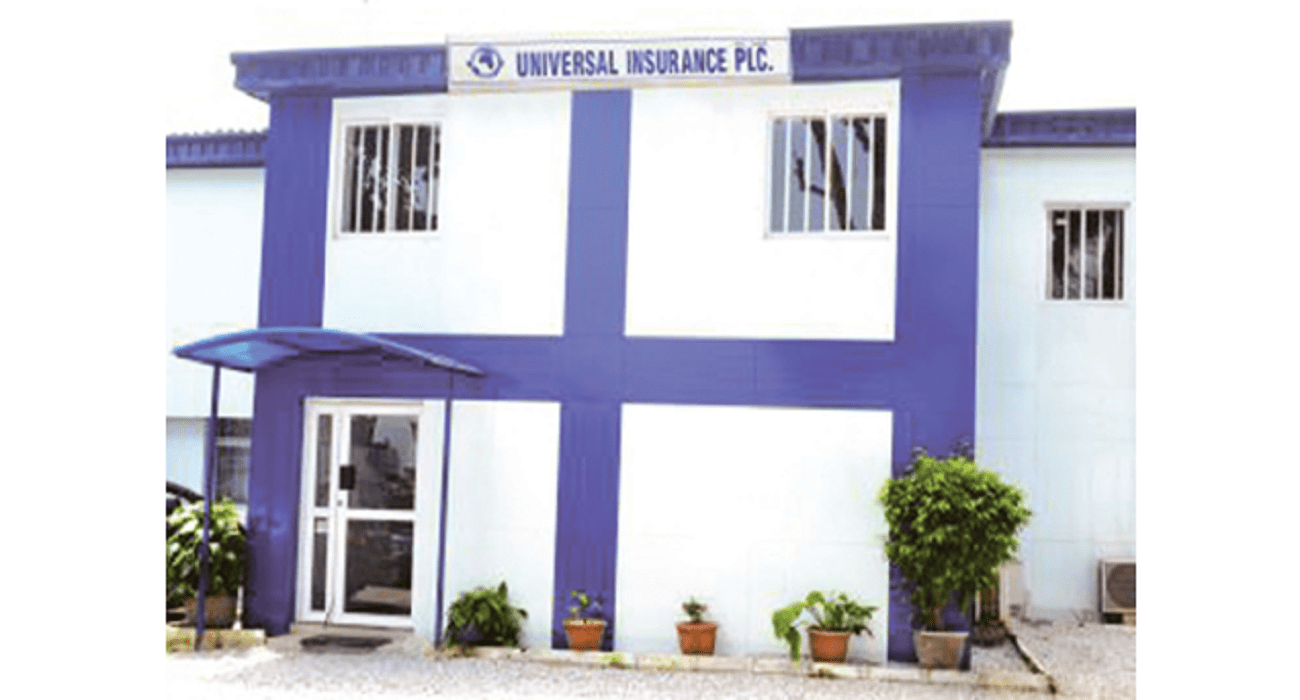Banking
The Remarkable Journey of Access Holdings

This year marks 22 years since two young Nigerian bankers – Aigboje Aig-Imoukhuede and Herbert Wigwe – bought a small, nondescript bank and turned it into one of the biggest financial institutions on the continent with a footprint also established in Europe and Asia. It was on March 22, 2002, that the two walked into Plot 1669 Oyin Jolayemi Street, Victoria Island, Lagos, which was then the corporate headquarters of the bank to assume duty and full control as the Managing Director and Deputy Managing Director. The acquisition process took about two years and entailed rigorous negotiations and countless hours of working through documentation. It was one of the most audacious takeovers in the history of the nation’s financial industry. Indeed, the phenomenal growth of the Access Group has become an inspiring success story.
Shortly after the takeover, Access Bank embarked on a five-year transformation agenda, and two years into the plan, the CBN announced the N25 billion capitalisation deadline set for the end of December 2005. The institution’s management went to work, raising the required capital and developing the impetus to seek opportunities for possible mergers and acquisitions. Recognising the opportunity that existed to build scale, the institution mobilised its workforce and quickly raised N15 billion via a public offer, acquired two other small banks, Capital Bank Ltd. and Marina International Bank Ltd., and convinced FMO, the Netherland development finance company, to become an institutional investor through the conversion of a $15 million term loan it had earlier given to the bank. With the N25 billion capitalisation met and surpassed, the race to the top became a fixed goal for the new owners. They then embarked on an aggressive drive to raise money both from local and foreign capital markets.
Between 2006 and 2007, Access Bank raised a local bond issue of N11.9 billion and in 2007 it raised N136 billion in public offerings, including a highly successful and oversubscribed GDR (global depository receipt) and established Access Bank UK. In June 2008, the beginning of the second five-year transformation plan, every action was geared at taking the institution to the top. Between 2009 and 2011, the bank passed CBN’s special audit on governance, liquidity and capital adequacy conducted under the tough-talking Sanusi Lamido Sanusi. Three major achievements were also recorded. The bank was awarded IFC Sustainable Bank of the Year; it acquired Intercontinental Bank and was ranked the fourth largest bank in Nigeria as a result of the acquisition.
With these successes, a huge surge of confidence and can-do spirit have by now swept through the entire workforce. Staffers went through a rigorous process of reorientation and change of the bank’s vision and mission; and with business combination with Intercontinental completed in 2012, management staff assumed bigger roles and responsibilities. Access Bank became one of the favourite places to work for bankers from other institutions. The bank was enjoying the pulsating work pace and dynamic work environment, enthralled in seeing the dream of being in the top five becoming a reality year after year.
That same 2012 and spanning 2013, the bank raised $350 million Eurobond in the international market and divested from non-banking subsidiaries. It was also designated as a significant important financial institution by the CBN, one of the very few in the industry. This means a recognition of its huge footprint in the economy, the integrity and respect of its leaders and the fact that the bank could not be allowed to fail under any circumstance. It is for this reason that the CBN recently intervened in the board and management composition of one bank. Another huge milestone came in 2014 when Access Bank issued a $400 million subordinated note (tier 2 bond) and transformed into a large, diversified banking institution.
In January 2014, Herbert Wigwe assumed duty as the Group Managing Director & Chief Executive Officer, after the retirement of Aigboje Aig-Imoukhuede. With enormous goodwill and attractive brand equity, the bank continued to outpace its contemporaries. In 2017, it further shored up its capital by raising N42 billion through a rights issue and issued another $300 million subordinated note.
But it was its merger with Diamond Bank in 2018 that catapulted Access Bank to the number one slot in at least some parameters: assets and retail business with 646 branches. It also recorded the biggest channel touchpoints: 38 million cards; 3,000 ATMs and 34,000 POS terminals. In 2019, Access Bank issued the first green bond in Nigeria. In 2020, it expanded its African business into Kenya and Mozambique and became the first Nigerian bank to set up shop in South Africa. A few weeks ago, the South African ambassador to Nigeria was on TV commending the bank for establishing a branch in his country.
In 2022, Access Bank marked the final year of its previous five-year strategy, which focused on building Africa’s gateway to the world, through the deployment of robust risk management practices, and a flawless execution of its strategic priorities. By all key metrics, the strategy was successfully executed as the bank grew its scale to span over 6,000 dedicated professional staff serving over 52 million customers across 17 markets worldwide.
In the second half of 2022, Access Bank was restructured into a Holding Company – birthing Access Holdings – to realise the potential of the synergies from the various businesses, while expanding product offerings to customers in payments, insurance, consumer finance and pensions.
True to plan, Access Holdings, in 2023, launched its operations in Paris, setting the tone for a robust long-term goal across the Northern Hemisphere. The Group has also strategically ventured into new territories, bringing its expertise, resources, and innovative solutions to areas with immense growth potential. These strategic moves exemplify the company’s vision to be a pan-African force, contributing to economic development across borders. Through its subsidiaries, the institution has played a pivotal role in sectors ranging from finance and banking to agriculture, technology, and healthcare, bringing diverse opportunities to the communities it serves.
In countries where Access Holdings has established a presence, the institution has become a driving force for job creation and entrepreneurship. Access Holdings has sown the seeds of sustainable economic development by supporting Small and Medium Scale Enterprises (SMEs), investing in local businesses, and providing financial solutions tailored to the needs of each market.
The company’s ability to adapt its business model to the unique dynamics of each African market sets it apart, as it recognises that Africa is not a monolithic entity, but a collection of diverse economies with distinct challenges and opportunities. Through its expansion strategy, the institution tailors its approach to address the specific needs of each region, contributing to a more inclusive and holistic development across the continent.
Commencing in the second half of 2024, the Group’s Africa and international expansion strategy will enter the consolidation and efficiency phase, aligning with the institution’s five-year plan to accelerate the attainment of its 2027 strategic objectives.
Banking
CIBN to Back ACAMB on Professional Development, Industry Advocacy

By Modupe Gbadeyanka
The Chartered Institute of Bankers of Nigeria (CIBN) has promised to support the ambitious plans of the Association of Corporate and Marketing Professionals in Banks (ACAMB).
At a meeting between the leaderships of the two organisations on Tuesday, the president of CIBN, Professor Pius Deji Olanrewaju, said it was impressed with the capability development and the undergraduate mentorship schemes of ACAMB under its leader, Mr Jide Sipe.
The CIBN chief commended the forward-thinking vision of the group, saying it had raised standards across Nigeria’s banking sector.
“ACAMB’s support has given CIBN and the banking sector brand equity,” he said, praising the association’s record in reputation management. recalling ACAMB’s role in addressing crises within the sector, describing the partnership as strategic and beneficial.
He further pledged support for ACAMB’s 30th anniversary in September 2026, its AGM, and other programmes, including fundraising initiatives.
“I want to assure you that everything you have presented today has been clearly noted and will be acted upon.
“We are fully committed to working closely with you so as to translate these discussions and vision into measurable progress. Our shared goal is to strengthen the sector, protect its reputation, and enhance its public image in a meaningful and lasting way.
“This meeting discussed various initiatives and reforms crucial for the future of our industry, including the need for continuous training and adaptation to new programs,” Mr Olanrewaju stated.
Speaking at the meeting, the president of ACAMB described the visit as a crucial first step in his tenure, aimed at contributing significantly to giving flight to his vision and that of ACAMB.
“When we assumed office, one of the first things we agreed on was the need to visit key stakeholders.
“However, before reaching out more broadly, we felt it was important to begin with our primary constituency and core stakeholders. We want them to understand the direction we are taking and to support the work we are doing, so that ACAMB can achieve greater success than it has in the past.
“We couldn’t have properly started our tenure without this very important meeting with the CIBN,” Mr Sipe stated
He introduced the newly constituted ACAMB Exco, which includes the 2nd Vice President, Morolake Phillip-Ladipo; General Secretary, Olugbenga Owootomo; Assistant General Secretary, Ademola Adeshola; Publicity Secretary, Abiodun Coker; and Executive Secretary, Fadekemi Ajakaiye.
Banking
All Set for Second HerFidelity Apprenticeship Programme

By Modupe Gbadeyanka
Registration for the second HerFidelity Apprenticeship Programme (HAP 2.0) organised by Fidelity Bank Plc has commenced.
The Divisional Head of Product Development at Fidelity Bank, Mr Osita Ede, informed newsmen that the initiative was designed to empower women with sustainable entrepreneurship skills.
The lender created the flagship women-empowerment initiative to equip women with practical, income‑generating skills and structured pathways to entrepreneurship.
“HerFidelity Apprenticeship Programme 2.0 reflects our commitment to continuous improvement. Having evaluated feedback from the first edition, we have returned with stronger partnerships and deeper mentorship programmes to ensure that women acquire not just skills, but sustainable economic opportunities,” he said.
“At the heart of the programme is guided, real‑world learning. Participants will undergo intensive apprenticeship training under reputable institutions and industry experts across select fields such as hair styling, shoe making, auto mechatronics, and interior decoration,” Mr Ede added.
He noted that HerFidelity Apprenticeship Programme 2.0 goes beyond skills acquisition by offering participants a wide range of business advisory services. These include business and financial literacy training, mentorship support throughout the apprenticeship journey, access to Fidelity Bank’s women‑focused and SME financial solutions, as well as guidance on business formalisation and growth strategies.
Further emphasising the bank’s vision, Mr Ede said, “By integrating structured mentorship with entrepreneurial development, Fidelity Bank is positioning women not just as trainees, but as future employers, innovators, and economic contributors within their communities. This aligns with our mandate to help individuals grow, businesses thrive, and economies prosper.”
Banking
The Alternative Bank Opens New Branch in Ondo

By Modupe Gbadeyanka
A new branch of The Alternative Bank (AltBank) has been opened in Ondo State as part of the expansion drive of the financial institution.
A statement from the company disclosed that the new branch would support export-oriented agribusinesses through Letters of Credit and commodity-backed trade finance, ensuring that local producers can scale beyond state borders.
For SMEs, the bank is introducing robust payment rails, asset financing for equipment and inventory, and supply chain-backed facilities that strengthen working capital without trapping businesses in interest-based debt cycles.
The Governor of Ondo State, Mr Lucky Aiyedatiwa, represented by his Chief of
Staff, Mr Olusegun Omojuwa, at the commissioning of the branch, underscored the importance of financial institutions in economic development.
“The pivotal role of financial institutions to economic growth and development of any economy cannot be overemphasised. It provides access to capital, supporting small and medium-scale enterprises and encouraging savings.
“Therefore, I have no doubt in my mind that the presence of The Alternative Bank in Ondo State will deepen financial services, create employment opportunities and stimulate economic activities across various sectors,” he said.
In her remarks, the Executive Director for Commercial and Institutional Banking (Lagos and South West) at The Alternative Bank, Mrs Korede Demola-Adeniyi, commended the state government’s leadership and outlined the lender’s long-term vision for Ondo State.
“As Ondo State steps into its next fifty years, and into the future anchored on the sustainable development championed during the recent anniversary celebrations, The Alternative Bank is here to be the financial engine for that vision. We didn’t come to Akure to hang banners. We came to fund work, farms, shops, and factories.”
With Ondo State’s economy anchored largely on agriculture, particularly cocoa production, poultry farming, and other cash crops, alongside a growing SME and trade ecosystem, AltBank is deploying sector-specific financing solutions tailored to these strengths.
For cocoa aggregators, processors and poultry operators, the bank will provide production financing, facility expansion support, machinery lease structures, and structured trade facilities under its joint venture and cost-plus financing models, with transaction cycles of up to 180 days for commodity trades and longer-term structured asset financing for equipment and infrastructure.
The organisation is a notable national non-interest bank with a physical network now surpassing 170 locations, deploying capital to solve real-world challenges through initiatives such as the Mata Zalla project, which saw to the training of hundreds of women as electric tricycle drivers and mechanics.
-

 Feature/OPED6 years ago
Feature/OPED6 years agoDavos was Different this year
-
Travel/Tourism10 years ago
Lagos Seals Western Lodge Hotel In Ikorodu
-

 Showbiz3 years ago
Showbiz3 years agoEstranged Lover Releases Videos of Empress Njamah Bathing
-

 Banking8 years ago
Banking8 years agoSort Codes of GTBank Branches in Nigeria
-

 Economy3 years ago
Economy3 years agoSubsidy Removal: CNG at N130 Per Litre Cheaper Than Petrol—IPMAN
-

 Banking3 years ago
Banking3 years agoSort Codes of UBA Branches in Nigeria
-

 Banking3 years ago
Banking3 years agoFirst Bank Announces Planned Downtime
-

 Sports3 years ago
Sports3 years agoHighest Paid Nigerian Footballer – How Much Do Nigerian Footballers Earn



















